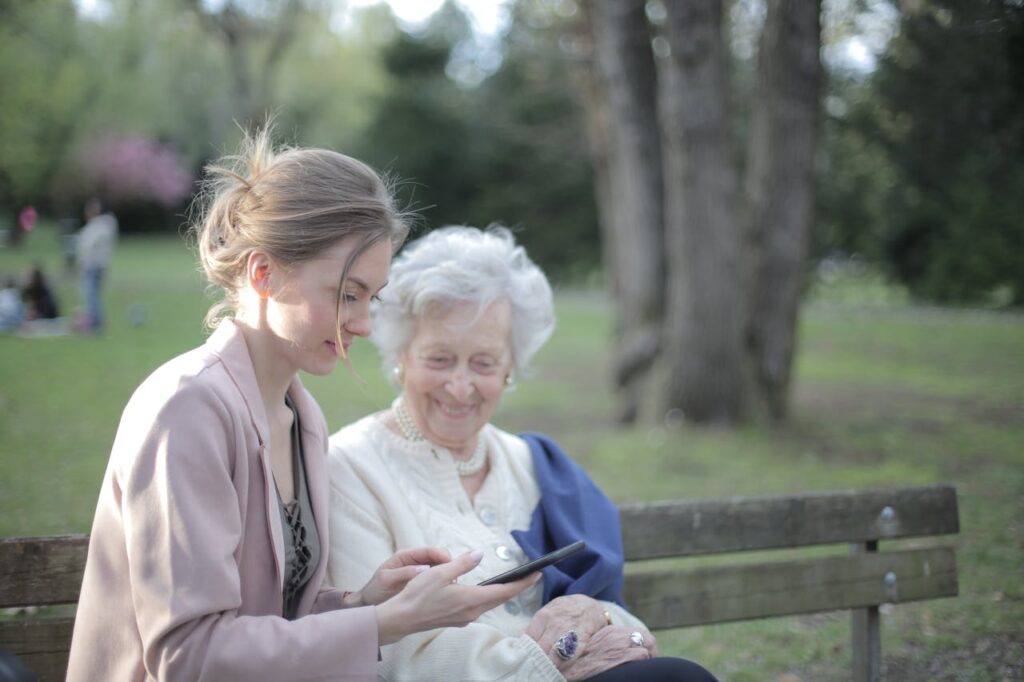What is Alzheimer’s disease?
Alzheimer’s disease is a progressive neurodegenerative disease that causes gradual decay of brain cells, which results in loss of memory, changes in behavior and problems with thinking and performing everyday activities. Even though the exact cause of Alzheimer’s disease is not yet known, characteristic changes in the brain include the creation of amyloid plaques and neurofibrillary tangles.
Symptoms of Alzheimer’s disease
First symptoms of Alzheimer’s disease are usually mild and are often wrongly attributed to normal aging. The most common early symptom is difficulty in remembering newly acquired information. Other early symptoms include:
- Forgetting recent events or conversations – People forget information that they recently received, like meetings or important dates
- Difficulties in performing everyday activities that were previously routine – Activities like cooking, driving or handling money become challenging
- Problems with finding the right words or following conversations – People struggle with finding the right words and often forget what they wanted to say
- Loss of orientation in time and space – Difficulties in recognizing where they are, getting lost in familiar places or forgetting the day of the week
- Changes in mood and behavior – Increased anxiety, depression, irritability or personality changes

Photo: Elderly lady in years in a park / Pexels
Symptoms of Alzheimer’s Disease
Symptoms of Alzheimer’s disease vary depending on the phase of the disease and can include:
Cognitive symptoms of Alzheimer’s disease:
- Memory loss – Difficulty in remembering new information and recalling events from the past
- Problems with attention and concentration – Reduced ability to focus and perform tasks
- Difficulties with problem-solving – Problems in making decisions and planning
- Loss of spatial and temporal orientation – Difficulties in recognizing places and time periods
- Reduced ability for abstract thinking – Problems with understanding numbers and the concept of time
Physical symptoms of Alzheimer’s disease:
- Loss of motor skills – Difficulties in coordination and balance
- Problems with speech – Difficulties in expressing and understanding speech
- Loss of ability to recognize faces – Inability to recognize familiar people
Emotional and psychological symptoms of Alzheimer’s disease
- Changes in mood – Depression, anxiety, irritability or apathy
- Aggressive behavior – Possible outbursts of anger or violent behavior
- Hallucinations and delusions – Seeing things that are not present or believing in things that are not true
What to do if you notice these symptoms?
If you notice any of these symptoms in yourself or someone close, it is important to contact a doctor for further evaluation. Early recognition and diagnosis can help in managing symptoms and planning future care. The doctor will perform a series of tests and might recommend specialist examinations in order to determine whether the symptoms are connected to Alzheimer’s disease or some other condition.
Alzheimer’s disease is a progressive condition that develops through different phases, each with its own characteristic symptoms. Recognizing the first symptoms is key for early diagnosis and providing adequate care. If you have any doubts or notice changes in cognitive functions, contact an expert for advice and support
Phases of Alzheimer’s Disease
Alzheimer’s disease is a progressive neurodegenerative illness that goes through three main phases: early (mild), middle (moderate) and late (severe). Each phase is characterized by different symptoms and the degree of damage to brain functions
Early phase of Alzheimer’s disease
In the early phase, symptoms are mild, but noticeable enough to affect everyday life. The most common symptoms include:
- Forgetfulness – People often forget recently received information, important dates or events
- Problems with finding words: Difficulties in finding the right words or naming objects
- Loss of orientation – Confusion about dates, seasons and time
- Difficulties with planning and organization – People have problems with following plans or solving problems, like complex tasks or managing finances
- Changes in mood and behavior – Possible occurrence of depression, anxiety or loss of interest in hobbies
In this phase, people with Alzheimer’s disease can still live independently, but they need additional support and help with organization and reminding of obligations. Early diagnosis and intervention can help in maintaining the quality of life
Middle stage of Alzheimer’s disease
As the disease progresses, symptoms become more pronounced and significantly affect everyday life. Symptoms of the middle stage include:
Memory loss – Increasing problems with recognizing familiar faces, forgetting personal information and events from the past. Difficulties in performing everyday tasks – Problems with performing more complex actions, like cooking, driving or managing a household Changes in behavior – Mood swings, irritability, anxiety, depression or aggression Difficulties in communication – Difficulties in maintaining conversations, losing the thread of conversations or repeating the same sentences Loss of spatial orientation – People easily get lost in familiar surroundings and have difficulties with navigation
In this phase, people with Alzheimer’s disease often require more help and supervision in everyday activities. Family and caregivers play a key role in providing support and care. Professional help and therapies can be useful for managing symptoms and improving the quality of life
Late stage of Alzheimer’s disease
In the late phase, symptoms become severe, and people with Alzheimer’s disease become completely dependent on others. Symptoms include:
Severe memory loss – Inability to recognize close people, significant events and places Serious difficulties in communication – Minimal or no ability for verbal communication, often responding only to nonverbal cues Complete dependence on care – People cannot independently perform basic activities like feeding, dressing, bathing and using the toilet Physical symptoms – Loss of mobility, muscle stiffness, problems with swallowing and incontinence
In this phase, people with Alzheimer’s disease require constant care and attention. Caregivers must be ready for emotional and physical challenges that come with caring for a person in the late phase of the disease. Palliative care can be necessary for providing comfort and quality of life in the last stages of the disease

Photo: Elderly lady in a park with company / Pexels
Alzheimer’s disease – Experiences
Experiences with Alzheimer’s disease can vary among individuals, but are often emotionally challenging both for those affected and their families. Caregivers often report feelings of sadness, frustration, and helplessness. Managing symptoms requires patience, understanding, and support. There are many resources and support available for caregivers, including advice on communication, strategies for coping with behavioral changes, and practical tips for daily care.
Alzheimer’s disease in young people
Although Alzheimer’s disease is most common in older people, it can also occur in young people, which is called early-onset Alzheimer’s disease. Symptoms are similar to those in older people, but often appear between the ages of 30 and 60. Early onset can be especially challenging because of work and family obligations that those affected may have. Early recognition of symptoms and timely diagnosis are key for managing the disease.
Risk factors and prevention of Alzheimer’s disease
The biggest known risk factor for Alzheimer’s disease is age, but genetic factors, lifestyle, and other medical conditions can also play a role. Prevention includes maintaining a healthy lifestyle, like regular physical activity, healthy diet, mental stimulation, and social engagement
Diagnosis
Diagnosis of Alzheimer’s disease includes assessment of symptoms, neuropsychological tests, and imaging techniques like magnetic resonance (MRI) or positron emission tomography (PET). Even though there is no cure for Alzheimer’s disease, there are treatments that can slow down the progression of symptoms and improve the quality of life for those affected. This includes therapies and support for caregivers
Alzheimer’s disease is a complex condition that requires a comprehensive approach in diagnostics and support. Education and awareness about the symptoms, phases, and experiences with Alzheimer’s disease are key for providing adequate care and support to ill people and their families
Connection between dementia and Alzheimer’s disease
Dementia and Alzheimer’s disease are often terms that are used interchangeably, but it is important to understand their difference and connection
How are dementia and Alzheimer’s disease connected
Alzheimer’s disease is one of the main causes of dementia. While dementia is an umbrella term for a set of symptoms, Alzheimer’s disease is a specific disease that causes those symptoms
Both are progressive, which means that the symptoms worsen over time. Alzheimer’s disease, as a cause of dementia, starts with mild symptoms like forgetfulness and difficulties in performing everyday activities, and later leads to more serious problems with memory, communication, and behavior
Diagnosing dementia implies identifying symptoms and excluding other potential causes. When symptoms of dementia are diagnosed, further tests can show that they are caused by Alzheimer’s disease
Even though there is currently no cure for Alzheimer’s disease, treatments are aimed at alleviating symptoms and slowing down the progression of the disease. Similarly, treatments for dementia depend on the underlying cause and can include medications, therapies, and lifestyle changes
Key Differences
Dementia is a general term for symptoms that affect mental abilities, while Alzheimer’s disease is a specific disease that causes those symptoms.
Dementia can be caused by various conditions, including vascular dementia, Lewy body dementia, and frontotemporal dementia, while Alzheimer’s disease is caused by specific pathological changes in the brain.
Treatments for Alzheimer’s disease are specific for that disease and focus on managing symptoms and slowing down the progression. Treatments for other types of dementia can vary depending on the cause.
Dementia and Alzheimer’s disease are closely connected, but are not the same. Dementia is a wider term for symptoms of decline in mental functions, while Alzheimer’s disease is a specific neurodegenerative disease that is the most common cause of dementia. Understanding this difference is key for proper diagnosis and treatment, as well as for providing adequate support to those affected and their families.




